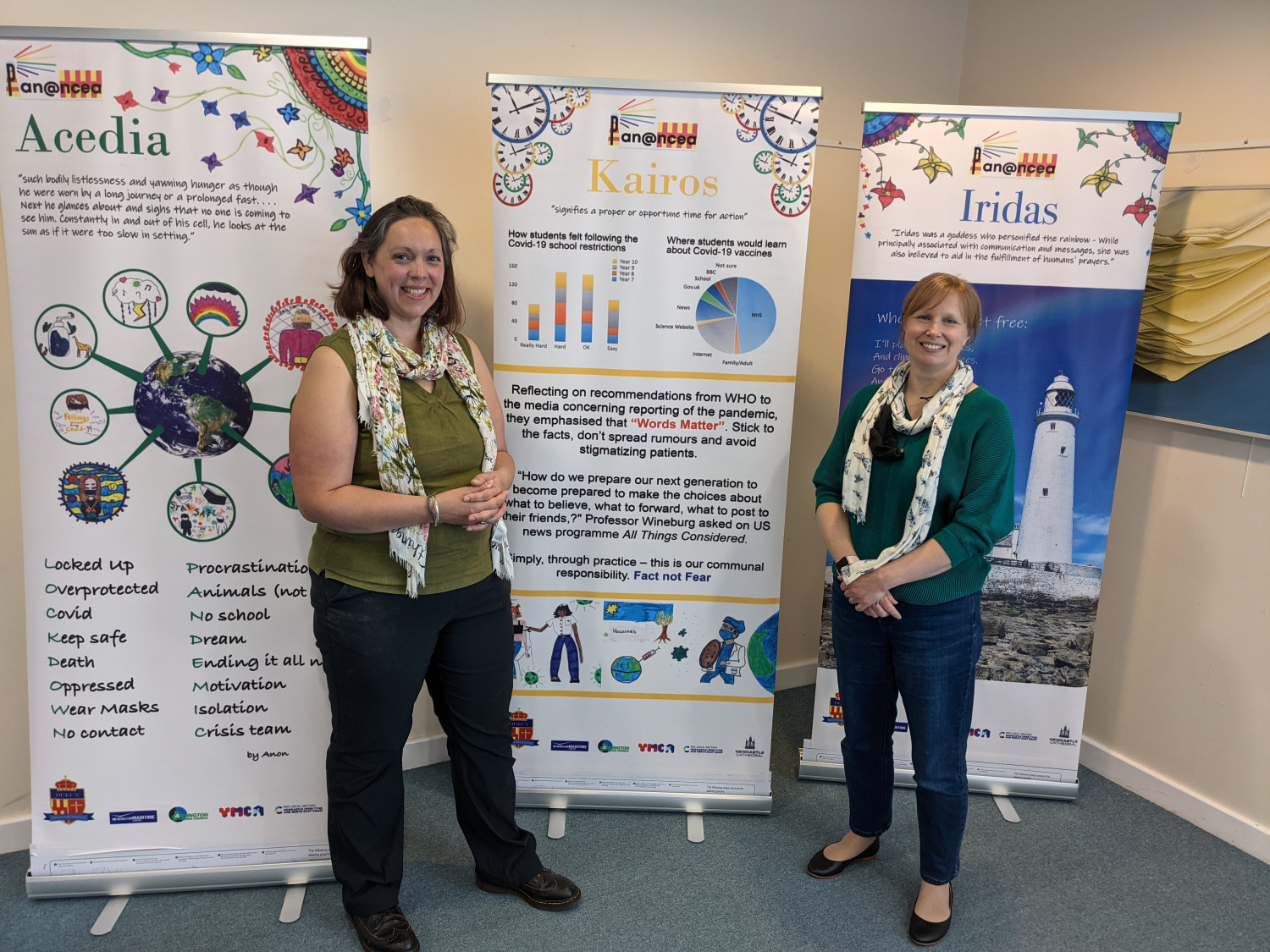
Students at a Northumberland church school have created a series of multimedia exhibitions demonstrating the significant impact of Covid on our North East communities.
These exhibitions, which will be hosted at Newcastle Cathedral in early October, aim to combine elements of the STEM curriculum (Science, Technology, Engineering and Maths) with Art, Design, Media and Languages.
Duke’s Secondary School in Ashington, which is part of the Northumberland Church of England Academy Trust, aims to tell the story of the pandemic through a number of art installations. Each installation is a different stage of the coronavirus pandemic, wanting to outline how the North East is tackling Covid and what it’s been like for people in our communities to ‘live through history’.
The exhibition was named ‘Pan@NCEA’, merging the words ‘pandemic’ and the acronym for Northumberland church of England Academy Trust.
The installations tried to tackle different senses, with sound recording of students and contacts from around the world, as well as interviews with Duke’s Secondary School’s Principal, Mr Russ Atkinson and Father Laurence Freeman, Director of The World Community for Christian Meditation.
They also had interactive activities, such as real-life X-Rays to compare healthy lungs with lungs affected by Covid, an experiment to show how the lateral flow test works, and a model of Covid-19 DNA, made by a blind student who has since graduated.
The exhibition will culminate with a special final display at Newcastle Cathedral from 30 September to 7 October.
Dr Jodi Harrison, Academic Mentor at Duke’s Secondary School, who led the project for the students, said: “We’re so excited to take our Pan@NCEA project on tour through the summer. Coronavirus has been the single biggest challenge that many of our young people have ever had to face.
“While many people simply want to put the pandemic behind them, we felt it was important to really explore the impact of Covid-19 on a scientific, economic and historic level to fully appreciate the gravitas of what we’ve lived through.
“The students threw themselves into the challenge and worked incredibly hard to create something which is truly reflective of not just their own experience of coronavirus, but of the experience of our communities as a collective.”
Dr Neil D. Graham, Vice Chair of the Royal Society of Chemistry Local Section, added: “[We’re] always happy to support efforts made by students and teachers to advance their understanding and knowledge in chemistry and it’s real-world applications. This is especially true when efforts are made to share this knowledge with others.”